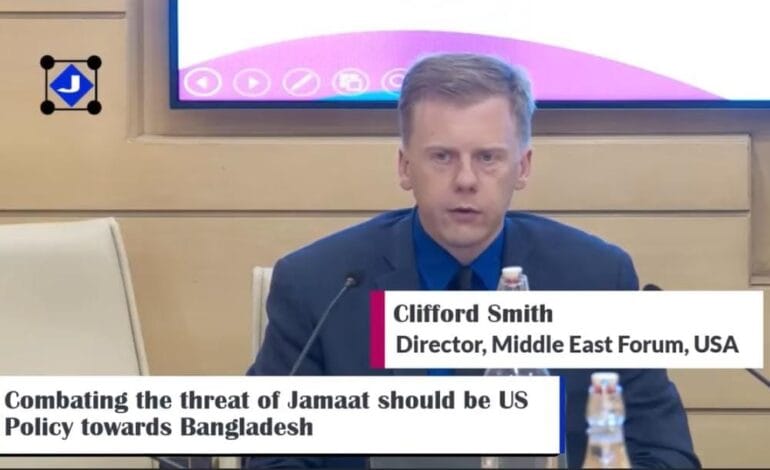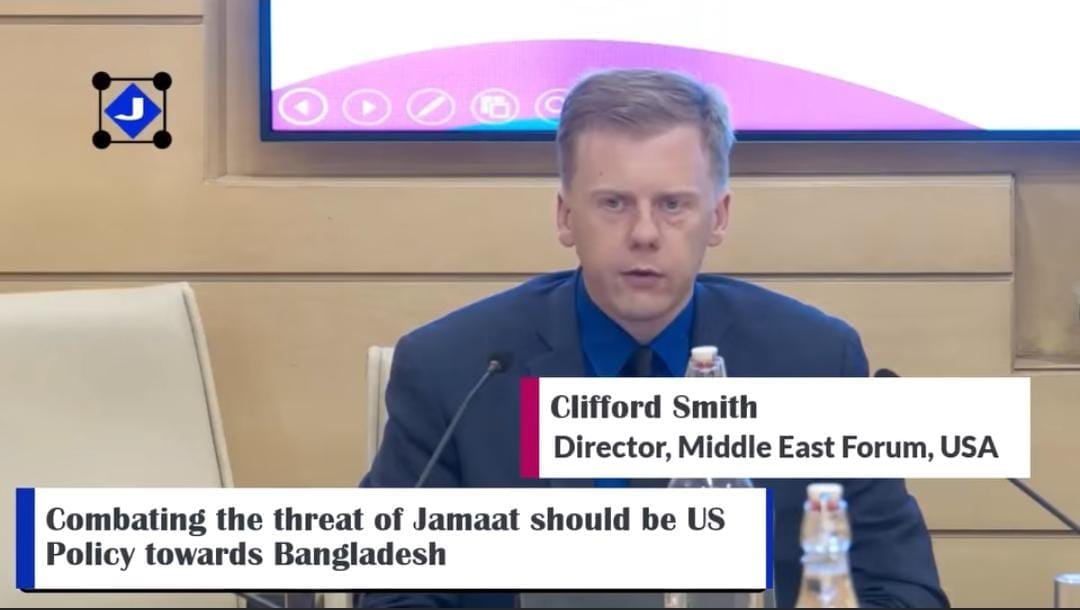U.S. Policy Towards Bangladesh: Combating the Growing Threat of Jamaat
Bangladesh is also a kind of focal point for discussions on security in South Asia in recent years. Jamaat-e-Islami-the Islamist political party with a past record of militancy again has

Bangladesh is also a kind of focal point for discussions on security in South Asia in recent years. Jamaat-e-Islami-the Islamist political party with a past record of militancy again has risen to focus attention as potential perpetrator of destabilisation for Bangladesh, with many analysts now urging the United States to include combatting Jamaat’s influence in its policy toward Bangladesh, since it had been a vicious uprising partner in the past.
The Emergence and Prospect of Jamaat-e-Islam
Jamaat-e-Islam, which gained popularity during the Bangladesh Liberation War of 1971, has been rooted in Islamist extremism since its formation. Jamaat never favoured Bangladesh’s independence from Pakistan and used violence against those who fought for independence. The Bangladeshi government dealt another heavy blow to Jamaat in the 2010s by putting the party’s top leadership behind bars for war crimes committed during the conflict in 1971. Several senior members of the party were found guilty and its influence was considerably weakened.
However, recent events show re-emergence as a force to be won by the group. Despite all political weakening, it still exercises great influence in more conservative and rural regions of Bangladesh. Also, its ideology is similar to other Islamist movements in the region, thereby being also a possible threat to form alliances with such militant forces like ISIS or al-Qaeda, which will create further instability to the region.
The U.S. Role in Counterterrorism and Diplomacy
Traditionally, Bangladesh has been a strategic partner for the U.S. in South Asia, with excellent diplomatic and economic ties. The country of more than 170 million people is of immense importance to the region, bordering India and Myanmar. Its relatively moderate democratic politics, under Prime Minister Sheikh Hasina, has translated its importance into making it an indispensable partner for fighting terrorism and radicalization.
Nevertheless, analysts appear to argue that the revival of Jamaat-e-Islami would directly threaten the dividends. Jamaat on its part is an extremist element and is attached to fundamentalist ideology as well as has ties with networks of extremist elements so it could be a source of disturbing the country’s improvement. Thus, the U.S should focus more on fighting Jamaat within its overall counterterrorism policy in South Asia.
Policy Recommendations for the U.S.
The U.S. should take many steps against the threat posed by Jamaat-e-Islam and against further instability in Bangladesh. Developing Counterterrorism Cooperation: In the past, the United States and Bangladesh have collaborated on efforts at counterterrorism, which have included intelligence sharing and training of law enforcement officials. A more targeted approach to reducing Jamaat’s network across the country would add greater strength to these efforts. In that regard, the United States will work closely with Bangladeshi intelligence services to prevent Jamaat from either radicalising youth or building an alliance with international terrorist organisations.
Promotion of Political Stability: The U.S. should continue to strengthen democratic institutions in Bangladesh. Though once a political force, the ideology of Jamaat is incompatible with Bangladesh being a secular and democratic state. It should be one of the prime objectives of U.S. foreign policy that extreme parties are kept marginalised in Bangladesh politics. It should also lend support to judicial processes against Jamaat members who committed war crimes and extremist activities.
Regional Diplomacy and Cooperation: Counter-insurgency in Bangladesh would have to be regional. Jamaat’s ideology does not bind by the country’s borders. It is a threat against South Asia rather than just Bangladesh. The U.S. should approach its regional partners, India, and the ASEAN nations to actually develop joint strategies to prevent groups like Jamaat from spreading their ideological rhetoric and starving off the funds that help these groups sustain themselves.
The Cost of Doing Nothing
Bangladesh and the region at large could suffer from severe implications from failure to address the renewed strength of Jamaat-e-Islam. Its presence, even in such an indirect way, means that Bangladesh would step into the zone of breeding grounds for extremism: a contact with international jihadist groups. Further instability of Bangladesh would cascade through the region of South Asia, imperilling regional security and U.S. interests.
The US cannot brush off the present rise of extremism across the globe and its nonchalant attitude towards Jamaat’s assumed new position as one of the most significant and actively dangerous forces against peace and stability; also, creating fear for a better and not-so-different Bangladesh.
As Bangladesh stands at a crossroads, U.S. policy will need to respond to the shifting threat. While the growing economy and democratic governance establish Bangladesh as a solid partner, the rise of Jamaat-e-Islam has led to potential undoing of achievements over the past decade. But by focusing on the battle against Jamaat, the U.S. can also consolidate the future of Bangladesh and stability in South Asia.



